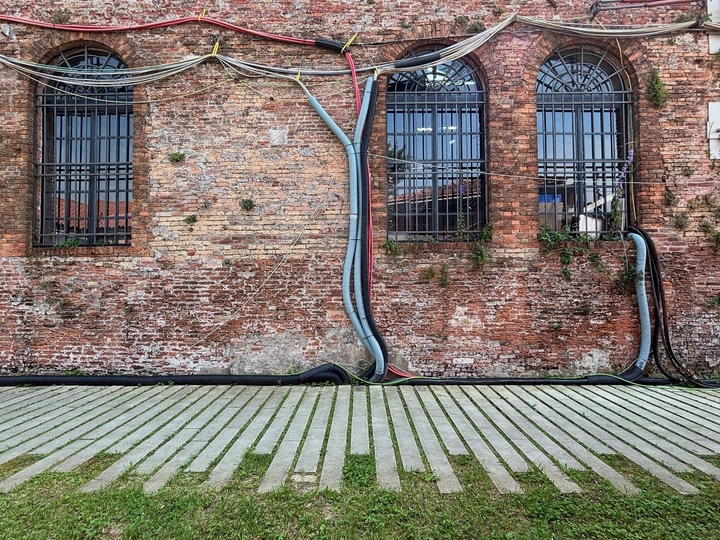Unauthorised Architects

(*1982) Polish-born, Poland–UK-based transdisciplinary artist and researcher working at the intersection of art, ecology, and socio-spatial politics. Through collective making with repurposed and living materials, counter-mapping, site-responsive interventions, and embodied practice, I explore ruderal plants and ruderality as a semiotic-material methodology to reconfigure power relations in peri-urban and urban environments.
My work investigates the regenerative and epistemic potential of marginalised ecologies—such as weeds, pigeons, and informal infrastructures—as actors/actants and knowledge producers. I am interested in how spontaneous ecologies reclaim space, contest surveillance and enclosure, and propose alternative models for food justice, spatial rights, and multispecies coexistence.
I hold an MA in Art and Science from Central Saint Martins, UAL, awarded with distinction. My thesis, Weeds before Meadow: A Case for Weed Assemblages as Queer Ecological Models for the World to Come, formed the foundation for my ongoing research into ruderal intelligence and speculative resilience.
I am currently a PhD candidate at the School of Design and Architecture, University for the Creative Arts, Canterbury. My work has been exhibited in the UK and across Europe, and supported by institutions including the Mayor of London. I have consulted for the 2023 British Ceramics Biennial and recently completed a British Council Fellowship at the 2025 Venice Architecture Biennale, where I conducted counter-mapping of ruderal ecologies and created The Pigeon Pavilion: A Manifesto in Defence of Pigeonisation, a speculative installation honouring pigeons as seed dispersers, urban cohabitants, and unauthorised architects.
Aligned with the urgent need to rethink urban and ecological futures through situated, plural knowledge systems, this project investigates ruderal intelligences, species thriving in disturbed environments, as critical agents in the co-production of urban space. Drawing from political ecology, critical spatial theory, and post-anthropocentric design, I position these species as “unauthorised architects”: resilient, intelligent actants who materially and semiotically reshape cities through informal, living networks of resistance and repair. This project proposes a collaborative and speculative investigation into ruderality, a concept central to my artistic research, understood as the ecological and political agency and presence of spontaneous nonhuman actors. To describe the semi-informal systems these species generate in the cracks of dominant infrastructures, redistributing resources and challenging enclosures, I coined the term parastructures.
But what holds what in the built environment? What happens when we try to remove these so-called “bad agents” from the substrates they’ve made home? Root filaments can erode or fortify masonry. Pigeons adapt to anti-roost spikes while dispersing seeds. Wild plants deemed invasive regenerate soil, build biodiversity, and can be considered as nutrients. These actors compel us to reconsider what cohabitation, survival, and the right to the city truly mean.
As part of the LINA fellowship, and building on fieldwork in London and Venice, I propose to work with LINA members and fellows to prototype Foods and Goods Paths, an evolving map of urban ruderal edibility, and a Kiosk of Commons, a parastructural node for distribution, knowledge exchange, and community engagement. While the geography remains open, the aim is to explore informal food systems rooted in multispecies solidarity, repair, and shared rights to root, roam, and remain.